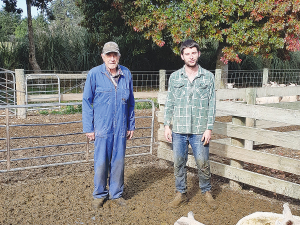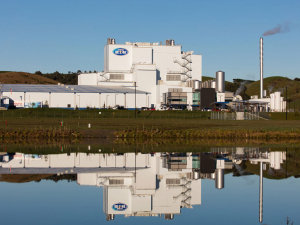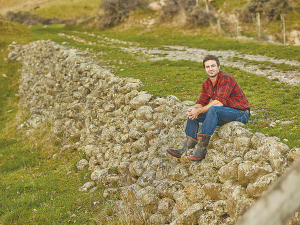Jim Anderson was born in Timaru in 1937 and educated at Timaru and Southburn schools. Before completing his secondary education via correspondence in 1952, he took up working on the family farm under his father, as well as contract work.
Apart from a nine year management stint at the Claremont Recovery Trust, Anderson has farmed continuously.
Taking over the farm in 1961, he married his wife Mary in 1962 with whom he has 11 children, several of whom work in the rural sector. In 2004, son Miles took over the farm, with Anderson senior continuing on as a farm hand.
Anderson says that he keeps working because he enjoys it.
"You're a jack of all trades in farming. I muster, drive tractors, understand bookkeeping," he told Rural News.
"The arable side of farming has always interested me, I'm very keen on looking after the land."
Additionally, he believes the social and political sides of farming are very important and often overlooked.
"My father's generation were basic, honest people but very informed about world politics," he says. "One day I asked my father why that was and he said, 'because everything that happens overseas affects my livelihood.'"
Anderson believes one of the greatest things in his farming life was becoming a member of the Young Farmers Club; sponsored by the Department of Agriculture.
"You received a lot of education, field days, learning about soil science and all those things," he explains.
"One of our activities was a debating club and I hated it, but looking back it was one of the most marvellous opportunities I ever had."
Anderson says that he is fortunate to still have good health to performa his duties effectively and encourages others in the industry - boss and employee alike - to consider staying if they do too.
"I still do most of the things I used to, just a bit slower," he says. "There's a man near us, Frank Black, who's 95 and he still drives his heading machine. I have never met a successful farmer that didn't work hard, but by the same token you've also got to know when it's time to go."
Over the years, Anderson has seen many changes in farming.
"In my early memories of farming, horses were the main way of farming, with thrashing mills and steam engines. The Downlands water was the biggest agricultural water scheme in the southern hemisphere in the '40s. Lots of the things that are happening now seemed like science-fiction, you wonder how much further it can go."
Anderson considers the advent of electric fencing and pregnancy scanning as two of the most revolutionary farming advances in his time. The first keeping stock in cheaply and effectively and the second knowing what ewes will be having twins or triplets and thus what to feed and medicines to give them.
However, he admits that not everything is better now, though.
"I think the big problem I have is from an environmental point of view, we've become very wasteful.
"We don't repair anything and we don't seem to be effectively able to replace the stuff we can't replace."
Speaking to the upcoming generation of farmers, Anderson has one main piece of advice.
"Absorb as much academic education as you can and gain as much physical experience on the farm so when you get to the latter stages of your education," he says.
"You can relate what's been taught to you to what you've experienced out on the land."









